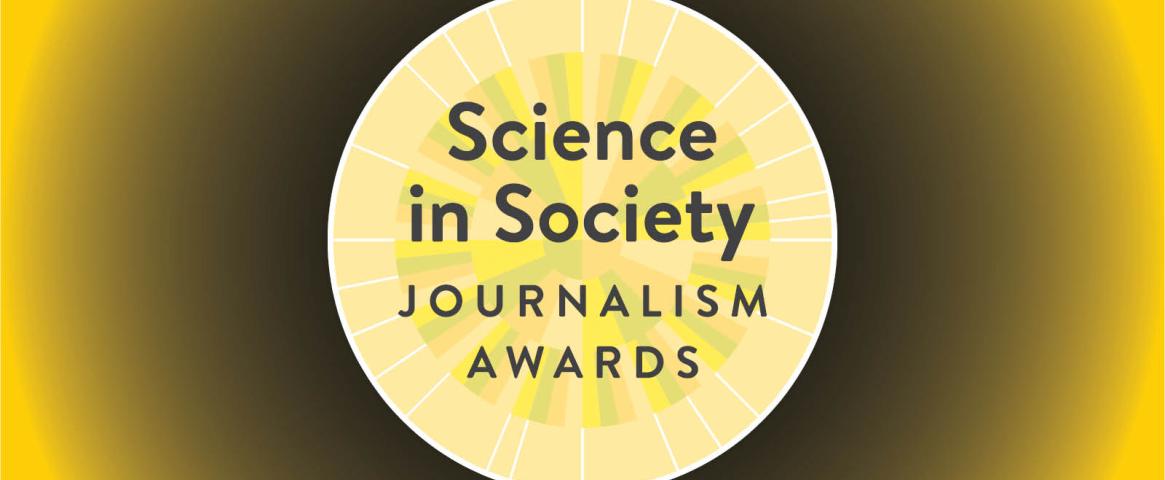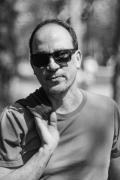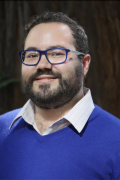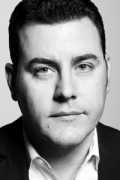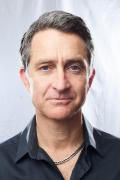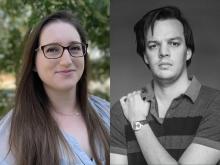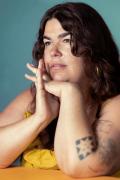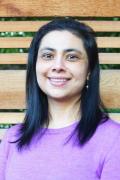The National Association of Science Writers and its Awards Committee are pleased to announce the winners of the 2024 NASW Science in Society (SIS) Journalism Awards. This year, NASW is awarding prizes in six categories: Books, Science Reporting, Science Features, Longform Narratives, Series, and Commentary. The winners are:
-
In the Books category, Pitfall: The Race to Mine the World’s Most Vulnerable Places by freelance journalist Christopher Pollon, published by Greystone Books.
-
In the Science Reporting category, "Should beetles be named after Adolf Hitler?" by Rodrigo Pérez Ortega, staff writer at Science magazine.
-
In the Science Features category, "In the Lab Oppenheimer Built, the U.S. Is Building Nuclear Bomb Cores Again" by W.J. Hennigan, now a correspondent for the Opinion section at The New York Times, published in TIME magazine.
-
In the Longform Narratives category, "The Mining Industry’s Next Frontier Is Deep, Deep Under the Sea" by journalist and author Vince Beiser, published in WIRED.
-
In the Series category, "Bleeding Out" by investigative reporter Lauren Caruba of The Dallas Morning News and Ari Sen, now an investigative data journalist with CBS News, co-published by The Dallas Morning News and the San Antonio Express-News.
-
In the Commentary category, "I Worked in Antarctica for Three Years. My Sexual Harasser Was Never Caught" by writer and artist Elizabeth Endicott, published in Scientific American.
The SIS award winners in each category will receive or share a cash prize of $2,000. The 2024 NASW Awards will be presented on Sunday, Nov. 10, in Raleigh, N.C., as part of the ScienceWriters2024 national conference. Follow hashtags #SciWri24 and #SciWriAwards on social media for ongoing awardee celebrations.
Praise for the 2024 SIS Books Category Winner: Published by Greystone Books in Oct. 2023, Pitfall: The Race to Mine the World’s Most Vulnerable Places by Christopher Pollon captures the quest to mine industrial metals essential for modern life and clean energy — and the costs to local people and environments.The judges describe Pitfall as a smartly written, forceful, and, above all, ambitious look at what may become a signature environmental challenge of our century. "Pitfall is the kind of detailed, thoroughly reported journalism that we just don’t see enough these days," the judges said. "Christopher Pollon has taken on an enormous topic with a similarly daunting reporting effort, bouncing around the world to show us the many faces of mining in the modern era, as seen by the local communities that are most affected by it."
Praise for the 2024 SIS Science Reporting Category Winner: Published in the Sept. 8, 2023, issue of Science, "Should beetles be named after Adolf Hitler?" by Rodrigo Pérez Ortega explores the contentious debate about changing animal and plant species names now deemed offensive, particularly of those named after racists and colonizers. Centered on an unfortunate beetle that bears the name of Adolf Hitler, Pérez Ortega walks readers through the pros and cons of erasing some names and starting over."In the U.S., we have recently undergone a reckoning about honoring those whose actions are no longer in line with contemporary ideals — who gets to have their name on a building, or a statue commemorating their legacy?" the judges said. "Science is not immune to those questions. And, as Rodrigo Pérez Ortega gracefully reports, whom we choose to name a species after is at the forefront of that debate."
Praise for the 2024 SIS Science Features Category Winner: In "In the Lab Oppenheimer Built, the U.S. Is Building Nuclear Bomb Cores Again," published July 24, 2023, in TIME magazine, W.J. Hennigan takes readers inside the plutonium facility at Los Alamos National Laboratory in New Mexico. After over a decade, efforts are under way to restart production of plutonium cores for nuclear weapons and enable their mass production."Most people see nuclear war as a historical matter, largely confined to the past, but W.J. Hennigan provides a clear-eyed perspective on how it is beginning to resurface as a preoccupation among scientists and worrisome societal implications of restarting America’s nuclear-weapons manufacturing program," the judges said. "The vivid storytelling and attention paid to how the operations impact the local community as well as larger global dynamics give this feature story a broad and captivating scope."
Praise for the 2024 SIS Longform Narratives Category Winner: Published in WIRED on Feb. 28, 2023, "The Mining Industry’s Next Frontier Is Deep, Deep Under the Sea" by Vince Beiser examines the controversial efforts to mine the ocean floor for metals essential to the renewable energy industry."'Out of sight, out of mind' is a phrase that could apply to many of today’s most pressing environmental crises, whether it’s melting ice caps, disappearing rainforests or coral bleaching,” the judges said. "But nowhere is this more true than in the newest frontier of deep ocean mining." The judges lauded the clear and effective way in which Beiser brings readers up to date on this crucial, hidden issue by following one entrepreneur through his journey to harvest metals from the ocean floor. "The job of the journalist is to bring light to the darkest corners of our world. Beiser does this well in the darkest place of all," they said.
Praise for the 2024 SIS Series Category Winner: Co-published by The Dallas Morning News and the San Antonio Express-News in Nov.-Dec. 2023, "Bleeding Out" by Lauren Caruba and Ari Sen investigates deaths caused by severe bleeding — and how unprepared many first responders are to treat it."Lauren Caruba and Ari Sen stare at a reality that most of us would rather look away from: bleeding to death," the judges said. Over two years, Caruba and Sen investigated shortcomings in U.S. emergency health care and determined that annually, as many as 31,000 deaths could be prevented simply by making blood available to first responders. "If you’ve ever watched a medical drama on TV, you might be forgiven for thinking that this rarely happens — that patients suffering from traumatic injuries arrive in the ER in time for treatment," the judges said. "Often, this is not the case," and this series exposes that reality.
Praise for the 2024 SIS Commentary Category Winner: In "I Worked in Antarctica for Three Years. My Sexual Harasser Was Never Caught," published in Scientific American on Dec. 19, 2023, Elizabeth Endicott pulls back the curtain on the gross mistreatment and administrative negligence suffered by the support staff of scientific missions in Antarctica — who outnumber researchers roughly seven to one.Endicott "makes a convincing case that far more needs to be done to address decades of sexual harassment and assault experienced by workers stationed there," the judges said. She weaves together statistics about sexual harassment and assault at the U.S. research stations with details of the harrowing stalking she experienced personally at McMurdo station. Endicott also filed a Freedom of Information Act request with the National Science Foundation to get her personnel file, revealing the extent of neglect and mishandling of the harassment she endured. "This unflinching investigation and personal commentary on the sexual harassment and assault problem of Antarctica scientific missions makes a strong argument for vigilance to ensure that NSF works harder in the future to protect staff beyond just scientists," the judges said.
In addition to the 2024 SIS winners, the judges would like to recognize entries that were finalists in the competition:
Finalists in the Books category:
- The Black Angels: The Untold Story of the Nurses Who Helped Cure Tuberculosis by author Maria Smilios, published by Penguin Random House.
- We the Scientists: How A Daring Team of Parents and Doctors Forged A New Path for Medicine by The Wall Street Journal health and science reporter Amy Dockser Marcus, published by Riverhead Books.
Finalists in the Science Reporting category:
- "A landmark study opens a new possible way for Black Americans to trace their ancestry" by WYPR health reporter Scott Maucione, published by WYPR.
- "The uncomfortable truths about visa discrimination and global health conferences" by freelance science journalist Abdullahi Tsanni, published by The BMJ.
Finalists in the Science Features category:
- "Expecting Extremes" by Science staff writer Meredith Wadman, published in Science magazine.
- "Lost in Translation" by freelance science journalist Sandeep Ravindran, published in Science magazine.
Finalists in the Longform Narratives category:
- "In Defense of the Rat" by independent journalist and author J.B. MacKinnon, published in Hakai Magazine.
- "Nitrogen Wars: The Dutch Farmers’ Revolt That Turned a Nation Upside-Down" by freelance writer Paul Tullis, published in The Guardian.
Finalists in the Series category:
- "Unearthing the Future" by Sarah Kaplan, Bonnie Jo Mount, Simon Ducroquet, Frank Hulley-Jones, and Emily Wright, published by The Washington Post.
- "The Bat Lands" by the staff at Reuters.
Finalists in the Commentary category:
- "Are We Having a Moral Panic Over Misinformation?" by freelance writer Joanna Thompson, in Undark.
- "Many scientists don’t want to tell the truth about climate change. Here’s why." by WBUR climate and environment correspondent Barbara Moran, published by WBUR.
In addition to the final judging committee, NASW thanks the volunteers who served on the SIS preliminary judging committees: Jennifer Abbasi (JAMA), Christina Couch (freelance), Rachel Courtland (MIT Technology Review), Ute Eberle (freelance), Desiree Hagen (KOTZ), Kimberly Hickok (freelance), Juhi Kunde (LUNGevity), Cassie Martin (Science News), Cynthia L. Mills (freelance), Amy Nordrum (MIT Technology Review), Ranjini Raghunath (Indian Institute of Science), Devin Reese (Natural History Magazine), Elliot Richman (freelance), Diana Steele (freelance), Nancy Volkers (International League Against Epilepsy), Cameron Walker (freelance), Ling Xin (freelance).
Finally, NASW thanks the volunteers who screened this year’s awards entries: Haley Barlow (freelance), Eric Bender (freelance), Melissa Blouin (freelance), Saugat Bolakhe (freelance), Rina Diane Caballar (freelance), Laura Stephenson Carter (freelance), Lisa Chiu (BrainFacts), Anne Connor (freelance), Miriam Fauzia (The Dallas Morning News), Bob Finn (freelance), Robert Frederick (Global Virus Network), Leigh Ann Gessner (Midpeninsula Regional Open Space District), Robin Marantz Henig (freelance), Kimberly Hickok (freelance), Ben Nathanson (freelance), Julian Nowogrodzki (freelance), Becky Oskin (UC Davis), Ranjini Raghunath (Indian Institute of Science), Kendra Redmond (freelance), Jeremy Rehm (freelance), Ariana Remmel (freelance), Elliot Richman (freelance), Priyanka Runwal (C&EN), Diana Steele (freelance), Stephani Sutherland (freelance), John Travis (Science), Ling Xin (freelance), Rachel Zamzow (The Open Notebook), Sara Zaske (Washington State University).
First awarded in 1972, the NASW Science and Society Journalism Awards were established to recognize investigative or interpretive reporting about the sciences and their impact on society. Intended to encourage critical, probing work that would not receive an award from an interest group, NASW presents these journalism awards without subsidy from any professional or commercial interest. The annual SIS honors have highlighted innovative reporting shaped by a diverse variety of perspectives — going well beyond the research findings and considering the associated ethical problems and social effects. The awards are especially prestigious because they are judged by accomplished peers.
Entries for the next awards cycle, recognizing material published or broadcast in 2024, are due Feb. 1, 2025. Nomination forms will be available at https://www.nasw.org/awards/sis beginning December 2024.
All NASW awards strive to showcase timely coverage and exemplary work, particularly those by underrepresented creatives tackling diverse, overlooked issues and communities. Judges especially consider diversity in topics, sources, audience, and authors to be a critical component of excellence. Nominations are not limited to the NASW membership, and media professionals are encouraged to submit entries on behalf of peers, colleagues, and mentees.
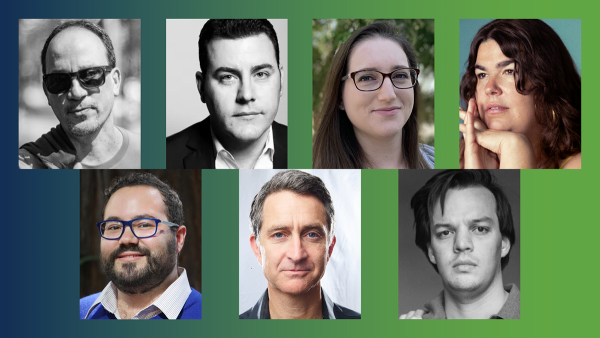 The winners of the 2024 NASW Science in Society Journalism Awards
The winners of the 2024 NASW Science in Society Journalism Awards
Photos courtesy of awardees. Image credits: Fernando Lessa; Lisa Strong; TIME; Spencer Lowell; Lauren Caruba; Ari Sen; Aurora Adams
Media kit for awardee institutional use is available at: https://bit.ly/sciwriawards2024; media representatives can request access via Google Drive. For assistance on this and other media requests, contact editor@nasw.org
Founded in 1934 with a mission to fight for the free flow of science news, NASW is an organization of ~2,400 professional journalists, authors, editors, producers, public information officers, students and people who write and produce material intended to inform the public about science, health, engineering, and technology. To learn more, visit www.nasw.org and follow NASW on LinkedIn and Bluesky. And join us in celebrating #NASW90th.
